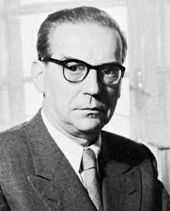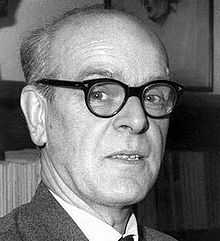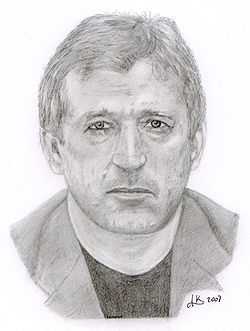Bosnians
| ||||||||||||||||||||||||||
| Total population | ||||||||||||||||||||||||||
|---|---|---|---|---|---|---|---|---|---|---|---|---|---|---|---|---|---|---|---|---|---|---|---|---|---|---|
| 7 - 8 million | ||||||||||||||||||||||||||
| Regions with significant populations | ||||||||||||||||||||||||||
| 3,800,000 (est.)[1] | ||||||||||||||||||||||||||
| 168,628[2][3] | ||||||||||||||||||||||||||
| 128,047 | ||||||||||||||||||||||||||
| 50,000[4] | ||||||||||||||||||||||||||
| 31,000 | ||||||||||||||||||||||||||
| 22,920[5] | ||||||||||||||||||||||||||
| 22,404 (2013)[6] | ||||||||||||||||||||||||||
| Languages | ||||||||||||||||||||||||||
| Bosnian, Croatian, Serbian, Serbo-Croatian | ||||||||||||||||||||||||||
| Religion | ||||||||||||||||||||||||||
| Sunni Islam, Orthodox Christianity, Roman Catholicism | ||||||||||||||||||||||||||
Bosnians (Bosnian: Bosanci, Croatian: Bosanci, Serbian: Босанци / Bosanci) are people who reside in, or descend from, Bosnia.
Native Bosnians are a South Slavic people and by the modern state definition, a Bosnian can be anyone who holds citizenship of the state of Bosnia and Herzegovina as largely synonymous with the all-encompassing national demonym Bosnians and Herzegovinians. This includes, but is not limited to, members of the constituent ethnic groups of Bosnia and Herzegovina: Bosniaks, Serbs and Croats. Those who reside in the smaller geographical region of Herzegovina may thus prefer to stress themselves as Herzegovinians in a localized, regional sense.
Ethnic minorities such as Jews, Roma, Albanians, Montenegrins and others may consider Bosnian to be attached to their ethnicity (e.g. Bosnian Jews). In addition, there is a sizable population in Bosnia and Herzegovina who believe that Bosnians are a people that constitute a distinct collective cultural identity.
History
Earliest records
The earliest cultural and linguistic roots of Bosnian history can be traced back to the Migration Period of the Early Middle Ages. It was then that the Slavs from southeastern Europe invaded the Eastern Roman Empire and settled the Balkan peninsula. There, they mixed with the indigenous paleo-Balkan peoples known collectively as the Illyrians. From the chaos of the Dark Ages, from 800 AD, the Slavic tribes coalesced into early principalities. As these expanded, they came to include other Slavic tribes and territories, and later evolved into centralized Kingdoms. The Croats to the west swore allegiance to Rome, influenced by neighboring Catholic kingdoms, while the Serbs to the east fell under Byzantine influence and embraced Orthodoxy; cementing their separate identities. In contrast, there was no prominent Slavic tribe in Bosnia, and an independent Bosnian state did not arise until the High Middle Ages. Prior to this, the core Bosnian lands (between the Drina and Bosna rivers) was in a near-constant state of flux between Byzantine, Serb, Croat, Bulgarian and Hungarian pretensions. In the twelfth century, a Bosnian state arose which was characterized by an independent religious structure. It rose to become a powerful kingdom in the fourteenth century, the designation Bošnjani was used to describe the kingdom's inhabitants. It was probably a regional name derived from the river Bosna which flows through the heart of the country. Before the collapse of the Roman Empire, the river was called the Bosona by the native Illyrians, and some scholars speculate that the name Bosnia itself derives from this term.
Bosnian Kingdom

The Bosnian kingdom grew and expanded under the Kotromanić dynasty to include Croatian and Serbian territories. As a consequence, even more Roman Catholics and Orthodox Christians dwelt within its borders, along with adherents of a native Bosnian Church whose origins and nature are a subject of continued debate among scholars. Those belonging to this sect simply called themselves Krstjani ("Christians"). Many scholars have argued that these Bosnian Krstjani were Manichaean dualists related to the Bogomils of Bulgaria, while others question this theory, citing lack of historical evidence. Both Catholic and Orthodox Church authorities considered the Bosnian Church heretical, and launched vigorous proselytizing campaigns to stem its influence. As a result of these divisions, no coherent religious identity developed in medieval Bosnia as it had in Croatia and Serbia.
Ottoman era
As the centuries passed, the Bosnian kingdom slowly began to decline. It had become fractured by increased political and religious disunity. By then, the Ottoman Turks had already gained a foothold in the Balkans; first defeating the Serbs at the Battle of Kosovo and expanding westward, the Turks eventually conquered all of Bosnia and portions of neighboring Croatia. Territory that partly belonged to the medieval Croatian Kingdom and partly to the Bosnian Kingdom had remained under Ottoman rule for so long that it had been referred to as Turkish Croatia (later as Bosanska Krajina). These developments would alter Bosnian history forever, introducing an Islamic component into the already confounded Bosnian ethno-religious identity. The Bosnian Church would forever disappear, although the circumstances under which it did are as hotly debated as its nature and origins. Some historians contend that the Bosnian Krstjani converted en masse to Islam, seeking refuge from Catholic and Orthodox persecution, while others argue that the Bosnian Church had already ceased to operate many decades before the Turkish conquest. Whatever the case, a distinct Slavic Muslim community developed under Ottoman rule in Bosnia, giving rise to the modern-day Bosniaks.
Austro-Hungarian era

| “ | A Bosnian's identity as a Bosnian - even if it originally referred to his geographical homeland or state membership - has roots going back many centuries, whereas the classification of any Christian Bosnian as a Serb or a Croat goes back barely a century. The idea of being Bosnian Muslim in a "national" (as opposed to a religious) sense is even more recent. | ” |
| —Robert J. Donia and John VA Fine, excerpt from their book- Bosnia and Hercegovina: A Tradition Betrayed[12] | ||
Yugoslav era
With the political establishment in Bosnia and Herzegovina dominated by Serb and Croat policies part of Yugoslavia, neither of the two terms Bosnian or Bosniak were recognized as a nation.[13][14] Consequently, Bosnian Muslims and anyone who professed themselves to a Bosnian/Bosniak ethnicity were listed under the category 'regional affiliation' by the Yugoslav statistics. This also applied to the last Yugoslav census in Bosnia and Herzegovina from 1991. As result, census format in former Yugoslavia was often subject to political manipulation. As a matter of fact, Bosnian Muslims requested the option 'Bosnian' in the constitutional amendments of 1947, but instead had to declare themselves either 'ethnically undeclared Muslim', 'Serb-Muslim' or 'Croat-Muslim' in the 1948 census (the vast majority choosing the first-mentioned).[14] In the 1953 census, the category "Yugoslav, ethnically undeclared" was introduced and the overwhelming majority of those who declared themselves as such were Bosnian Muslim.[14] The Bosniaks or Bosnian Muslims were eventually highlighted as an ethnic group under the definition of 'Muslim-Ethnic affiliation' in the 1961 census, but not as a Yugoslav constitutive nation alongside Serbs and Croats. In 1964, however, the Fourth Congress of the Bosnian Party assured the Bosniaks' the right to self-determination which led to the unreserved acceptance of Bosniaks as a distinct nation at a meeting of the Bosnian Central Committee in 1968, though not under the Bosniak or Bosnian name as opted by the Bosnian Muslim leadership.[14][15] Hence, as a compromise, the option "Muslims by nationality" was introduced in the 1971 census, remaining the official label of Bosniaks until the final Yugoslav census in 1991.[14]
Modern era
In 1990 the name Bosniaks was reintroduced to replace the term "Muslim by nationality". This resulted in Bosniak, or even Muslim, as terms being (re)coined recently as a political compromise. Due to widespread practices in the Ottoman empire, the distinction (for taxation purposes, military service etc.) was made based primarily on the religious background of a citizen.
Religion
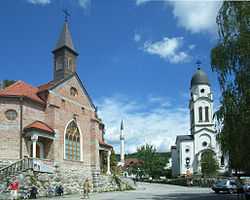
Bosnians are as multi-religious a society as they are multi-ethnic, but this is not to say that its component religions and ethnicities are homogeneous and independent from each other.
According to Tone Bringa, an author and anthropologist, in respect to Bosnia and Bosnians she states that "Neither Bosniak, nor Croat, nor Serb identities can be fully understood with reference only to Islam or Christianity respectively but have to be considered in a specific Bosnian context that has resulted in a shared history and locality among Bosnians of Islamic as well as Christian backgrounds."[16] According to Bringa, in Bosnia there is a singular, "trans-ethnic culture" that encompassed each ethnicity and makes different faiths, including Christianity and Islam, "synergistically interdependent".[16]
Still, large numbers of Bosnians are secular which is a trend that has more profoundly found root in last 60 years in Bosnia and Herzegovina as they were part of the Communist system that rejected traditional organized religion.
Identification


In a 2007 survey conducted by the United Nations Development Programme (UNDP), 57% of the surveyors identified an ethnic designation as the primary one, while 43% opted for "being a citizen of Bosnia-Herzegovina". However, 75% of the surveyors answered positively to the question "As well as thinking of yourself as a [Bosniak, Croat, Serb], do you also think of yourself as being a citizen of the whole of Bosnia-Herzegovina?". In the same survey, 43% said that they identify as a citizen of Bosnia-Herzegovina as the primary identity, 14% identified themselves solely with their specific ethnic or religious group, while 41% expressed the dual identity.[17][18]
See also
- Army of the Republic of Bosnia and Herzegovina
- Bosnian Croat War
- Bosnian–Serbian War (1326–1329)
- Bosnian War
- Bosnian Cyrillic
- Culture of Bosnia and Herzegovina
- Demographics of Bosnia and Herzegovina
- Lilium bosniacum
- List of Bosnia and Herzegovina patriotic songs
- List of people from Bosnia and Herzegovina
- Republic of Bosnia and Herzegovina
- Sandžak
- SR Bosnia and Herzegovina
References
- ↑ CIA - The World Factbook CIA Fact Book
- ↑ "20680-Country of Birth of Person (full classification list) by Sex - Australia" (Microsoft Excel download). 2006 Census. Australian Bureau of Statistics. Retrieved 22 August 2010.
- ↑ "20680-Ancestry (full classification list) by Sex - Australia" (Microsoft Excel download). 2006 Census. Australian Bureau of Statistics. Retrieved 22 August 2010.
- ↑ Migrants in Europe - Survey: Norway
- ↑ [http://www12.statcan.gc.ca/.../dp-pd/dt-td/Rp-eng.cfm... "Ethnic Origin (264), Single and Multiple Ethnic Origin Responses (3), Generation Status (4), Age Groups (10) and Sex (3) for the Population in Private Households of Canada, Provinces, Territories, Census Metropolitan Areas and Census Agglomerations, 2011 National Household Survey"].
- ↑ "Statistics Denmark:FOLK2: Population 1. January by sex, age, ancestry, country of origin and citizenship". Statistics Denmark. Retrieved 1 October 2013.
- ↑ Sugar, Peter F. (1963). Industrialization of Bosnia-Hercegovina: 1878-1918. University of Washington Press. p. 201.
- ↑ Ramet, Sabrina P. (2008). "Nationalism and the 'Idiocy' of the Countryside: The Case of Serbia". Serbia, Croatia and Slovenia at Peace and at War: Selected Writings, 1983-2007. LIT Verlag Münster. pp. 74–76. ISBN 978-3-03735-912-9.
- ↑ 9.0 9.1 9.2 Velikonja, Mitja (1992). Religious Separation and Political Intolerance in Bosnia-Herzegovina. Texas A&M University Press. ISBN 978-1-58544-226-3.
- ↑ Central and South-Eastern Europe 2004, Volume 4, p 110
- ↑ Banac, Ivo (1988). The National Question in Yugoslavia: Origins, History, Politics. Cornell University Press. ISBN 978-0-8014-9493-2.
- ↑ Robert Donia, John VA Fine (2005). Bosnia and Hercegovina: A Tradition Betrayed. Columbia University Press. Retrieved 30 October 2012., p. 73, 1995,
- ↑ Klemenčič, Matjaž (2004). The Former Yugoslavia's Diverse Peoples: A Reference Sourcebook. ABC-CLIO. p. 113. ISBN 1-57607-294-0.
- ↑ 14.0 14.1 14.2 14.3 14.4 Banac, Ivo (1988). The National Question in Yugoslavia: Origins, History, Politics. Cornell University Press. pp. 287–288. ISBN 0-8014-9493-1.
- ↑ Kostic, Roland 2007. Ambivalent Peace: External Peacebuilding, Threatened Identity and Reconciliation in Bosnia and Herzegovina. Report No. 78, Department of Peace and Conflict Research and the Programme for Holocaust and Genocide Studies, Uppsala University, Sweden, p.65.
- ↑ 16.0 16.1 Shatzmiller, Maya (2002). Islam and Bosnia: Conflict Resolution and Foreign Policy in Multi-Ethnic States. McGill-Queen's Press. p. 32. ISBN 978-0-7735-2413-2.
- ↑ "UNDP Published a Major Research on Return, Identity, Politics and Social Trust". United Nations Development Programme for Bosnia and Herzegovina. 2007-07-07. Retrieved 2007-07-27.
- ↑ "Pulse of the citizenry". United Nations Development Programme for Bosnia and Herzegovina. 2007-07-07. pp. 19–20. Retrieved 2007-07-27.
External links
| |||||||||||||||||||||||

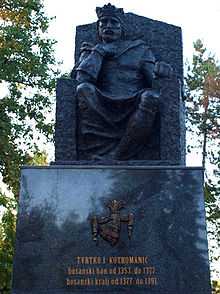

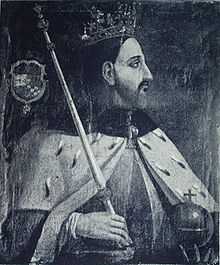
.jpg)




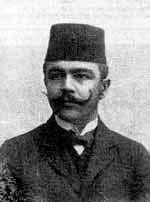
.JPG)


